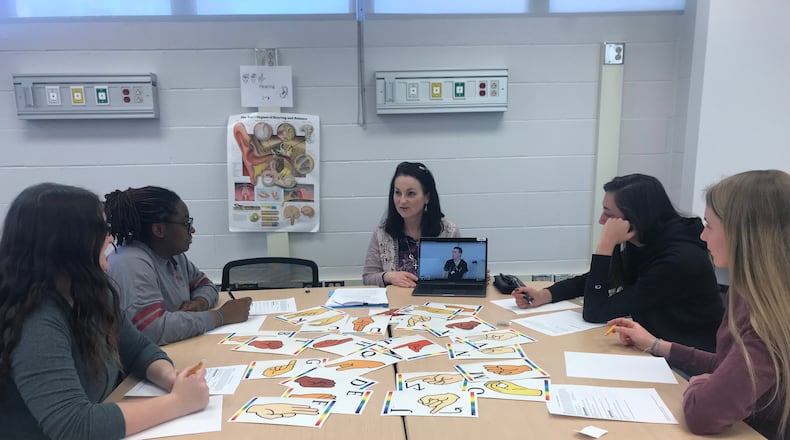“The post-master’s teaching certificate will close the knowledge gap for nurses who are making the transition from direct patient care to educating the next generation of nurses,” said Marie Bashaw, a Wittenberg professor and director of nursing.
The certificate is for nurses who already have a master’s or doctoral degree in nursing.
Nursing educators have become an area identified as a critical need nationwide, especially due to the COVID-19 pandemic.
“This program can benefit hospital-based educators as they support the direct care nurses, educating them on new procedures, policies and processes. It benefits nurses moving from the hospital to academia, giving them the building blocks for how to develop curriculum, active learning strategies, teaching plans, evaluation and assessment,” Bashaw said.
The university decided to apply for and add this program because the nursing faculty felt it would help the new educators, and adjunct faculty increase their knowledge and enhance their ability to teach necessary topics to students and new nurses in hospitals.
Bashaw said nursing educators are in “tremendous need.”
“The number of academic nurse educators is below the number needed to meet the need of students applying to nursing programs. Nursing programs are turning away qualified applicants because of the lack of qualified faculty. COVID-19 has impacted educators, and many have chosen to retire,” she said.
Faculty shortages at nursing schools across the country are limiting student capacity even as the need for professional registered nurses continues to grow, according to the American Association of Colleges of Nursing (AACN). Budget constraints, aging faculty and increasing job competition have all contributed to this crisis.
Nursing schools in the United States turned away 80,407 qualified applications from bachelor and graduate nursing programs in 2019 due to an insufficient number of faculty, clinical sites, classroom space, clinical preceptors and budget constraints, according to AACN’s report on 2019-20 Enrollment and Graduations in Baccalaureate and Graduate Programs in Nursing. Most nursing schools that responded to the survey said faculty shortages were a top reason for not accepting all qualified applicants into their programs.
AACN found that 8,471 qualified applicants were turned away from master’s programs and 3,157 were turned away from doctoral programs.
“Efforts to expand the nurse educator population are frustrated by the fact that thousands of qualified applicants to graduate nursing programs are turned away each year,” the AACN stated.
Approval for Wittenberg’s certificate has been received by the Ohio Department of Higher Education. The university will target enrollment for its first class for spring 2023.
Enrollment for the program will not be capped at a certain limit. There will be two classes offered each semester in spring, summer and fall. Nurses with a master’s in Nursing or doctoral degree can enroll at any time and complete the program in one year.
The university is hopeful that nurses who are transitioning away from direct care will take advantage of this certificate, as well as nurses interested in becoming educators in the future.
“This program will improve the competence and confidence of nursing instructors, both in college and in the hospital, in teaching students. Improved education will lead to improved patient outcomes,” Bashaw said.
The university has added new academic programs and changes to the curriculum in not only nursing, but also athletics, management, science, and education.
Along with the new post-master’s certificate in nursing education, there is now also a Master of Arts in Athletic Coaching that was expanded into a Master of Arts in Sports Administration with a broader set of topics and is now fully online; two new paths within the management major that were added to include supply chain management and project management; a Bachelor of Science option in exercise science; and the Master of Arts in Education moved to be fully online.
For more information, visit the website for the program at https://www.wittenberg.edu/academics/nursing/nursing-post-masters-teaching-certificate.
About the Author

